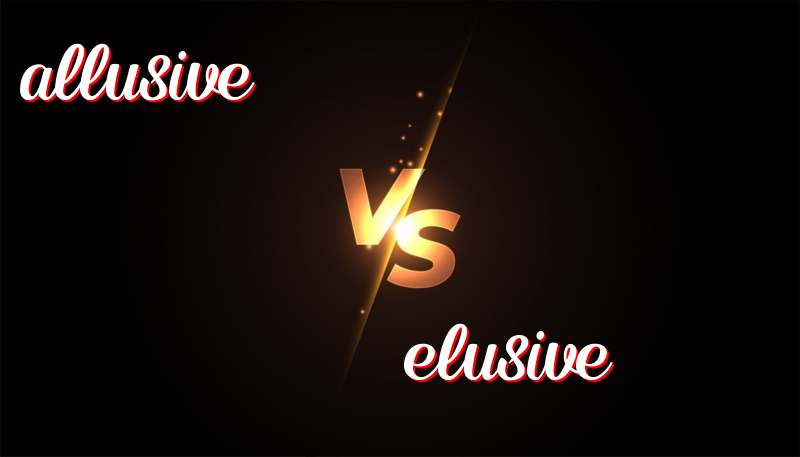All About Allusive & Elusive
About Allusive vs. Elusive
Allusive and elusive are two words that sound similar but have different meanings. Let’s explore them to understand their differences.
Allusive
History: The word “allusive” comes from the Latin word “allusivus,” which means “playing with” or “referring to.”
How to use: Allusive is used to describe something that alludes to or indirectly references something else.
Trick to Remember: Think of “allusive” as a clue that points to something else.
- I don’t understand the allusive references in this book.
- Her speech was allusive, hinting at her upcoming project.
- The painting is allusive, suggesting a deeper meaning.
- Their jokes were allusive, referring to an inside story.
- His allusive comments left everyone puzzled.
Elusive
History: The word “elusive” comes from the Latin word “elusus,” which means “to escape from” or “to elude.”
How to use: Elusive is used to describe something that is difficult to find, capture, or remember.
Trick to Remember: Remember that an elusive thing is hard to capture, like trying to hold onto a slippery eel.
- The answer to the puzzle remains elusive.
- She has an elusive personality, hard to understand.
- The cat’s elusive movements kept eluding the dog.
- Success at the elusive treasure hunt seemed impossible.
- The thief was elusive, escaping capture each time.
Summary
Remember, allusive refers to indirect references, like a clue, while elusive describes something that is hard to find or capture, like chasing a slippery eel.

Leave a Reply
You must be logged in to post a comment.